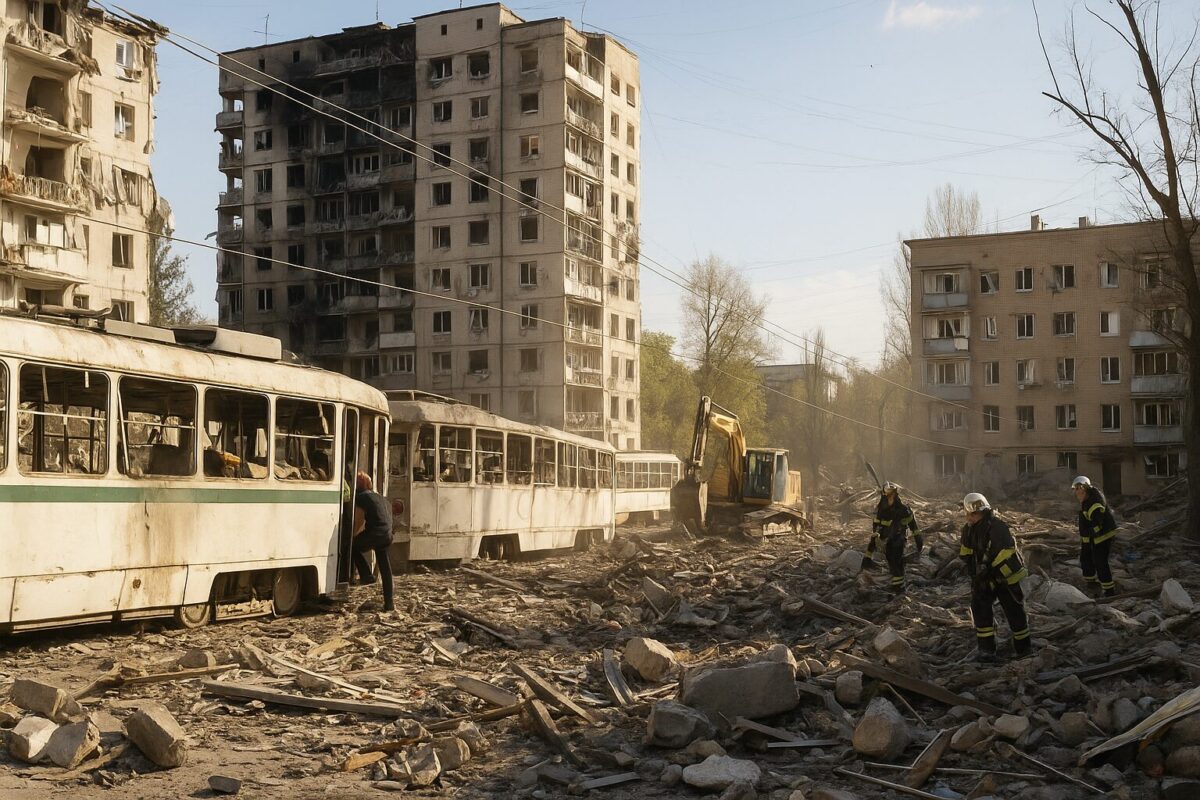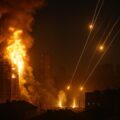
The Hague, Dnipro, and the Tribunal: one day that revealed everything
June 24, 2025, brought together three key dimensions of the ongoing war in Ukraine: international diplomacy, a deadly missile strike on civilians, and a decisive step toward justice. While political leaders met in The Hague, Russian missiles struck Dnipro, and preparations were underway for a landmark agreement to establish a Special Tribunal for the crime of aggression.
The Hague: talks, alliances, and urgent appeals
This week, The Hague is once again in the global spotlight. On June 24, the NATO summit began, gathering leaders from member states and key partners. Ukrainian President Volodymyr Zelenskyy arrived in the Netherlands the day before and began high-level meetings in the morning, starting with Dutch Prime Minister Dick Schoof at the Catshuis residence.
Although Ukraine is not a full participant in all sessions, Zelenskyy’s presence is crucial. He is expected to meet with U.S. President Donald Trump on the sidelines of the summit to discuss military aid and additional sanctions against Russia.
Ukraine’s key priorities include strengthening air defense and securing firm international support in the face of escalating threats from Moscow. Behind every meeting is the same unresolved question: how to stop the aggressor?
Dnipro missile strike: diplomacy met with destruction
While global leaders talked peace, Russian missiles brought death. Around 10:56 a.m. on June 24, Russia launched a massive ballistic missile strike on the city of Dnipro and surrounding areas. At least four Iskander-M missiles were used, according to preliminary reports.
The toll is devastating:
- 17 civilians killed, more than 200 injured, including at least 27 children;
- extensive damage to dozens of apartment buildings, a dormitory, hospital, clinic, school, kindergarten, music school;
- more than 50 public facilities damaged or destroyed;
- a missile struck near passenger train No. 52 (Odesa–Zaporizhzhia), injuring 10 people, including several children.
Public transport was also targeted: buses, trams, train cars, dispatching centers. Over 2,000 windows were shattered. Emergency responders remain on the scene.
This is one of the deadliest attacks in recent weeks, and it starkly contrasted the diplomatic rhetoric unfolding in The Hague. It’s a chilling reminder that while the world talks, Russia acts. And it acts against civilians.
Revelant
A step toward justice: the Special Tribunal agreement
Amid this chaos, a critical development is set to take place. On June 25, an agreement between Ukraine and the Council of Europe is scheduled to be signed in The Hague. Its goal: the establishment of a Special Tribunal for the Crime of Aggression committed by the Russian leadership.
Ukrainian MP Yevheniia Kravchuk confirmed the plan, citing Council of Europe Committee of Ministers President Ian Borg. On June 24, the Committee held an extraordinary session and officially authorized Council of Europe Secretary General Alain Berset to sign the agreement.
Why a new tribunal? Because the International Criminal Court (ICC) has no jurisdiction over the crime of aggression when it comes to Russia, a non-signatory to the Rome Statute. That’s why a dedicated tribunal is needed to investigate and prosecute the initiation of the war, not just its war crimes and atrocities.
The agreement between Ukraine and the Council of Europe lays the legal foundation. If implemented, the tribunal could begin operating as early as 2026. The Netherlands has expressed readiness to host it.
One day, three dimensions of war
June 24 revealed the raw, simultaneous reality of modern war: diplomacy, destruction, and the pursuit of justice unfolding all at once. As Ukraine’s president called for support in The Hague, missiles rained down on Dnipro. As talks of sanctions circulated, a train carrying children came under fire.
But the next day, a step toward accountability is expected. The tribunal agreement is more than paperwork. It’s a signal: this war will not go unpunished. Those who launched it by order, by plan, by intent will not remain untouchable forever.
Justice, like peace, takes time. But it starts with naming the crime and naming those who gave the command.














